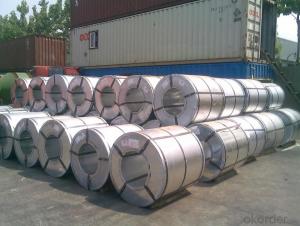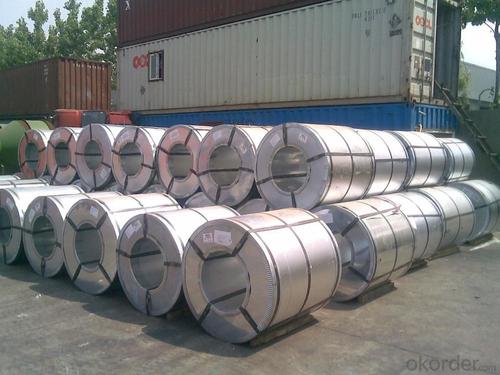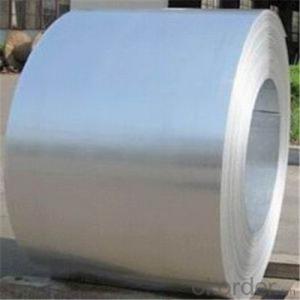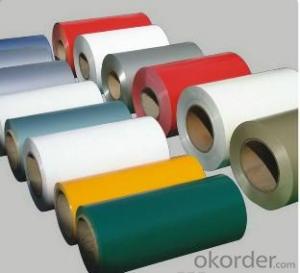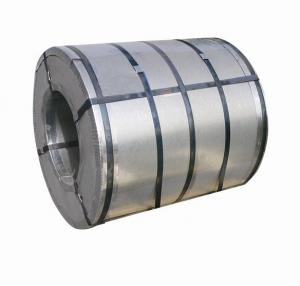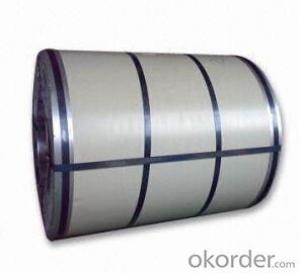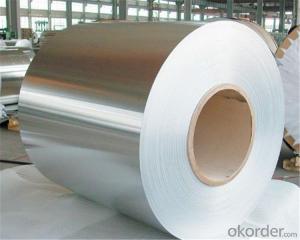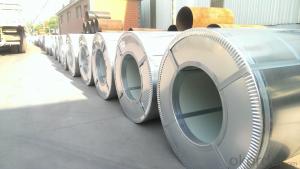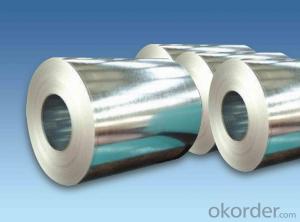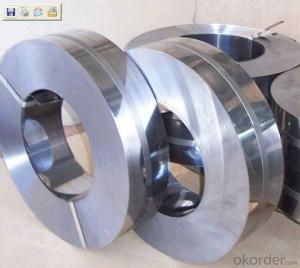Galvanized Steel Coils Hot Dipped ASTM A653 Type GB Grade SGCC
- Loading Port:
- China main port
- Payment Terms:
- TT OR LC
- Min Order Qty:
- 10 m.t.
- Supply Capability:
- 10000000 m.t./month
OKorder Service Pledge
OKorder Financial Service
You Might Also Like
1.Description of Galvanized Steel Coils Hot Dipped ASTM A653 Type GB Grade SGCC:
With excellent cold bending molded manufacturablity, good decoration effect, strong anti-corrosion ability, galvanized steel coils and sheets are also pollution-free and easily recycled. Accordingly, they can be used as final products and basic plates of color coated steel coils and widely applied in construction, home appliances, decoration, ect.
2.Specifications of Galvanized Steel Coils Hot Dipped ASTM A653 Type GB Grade SGCC:
Surface treatment : Chromated, dry or oiled, cr3 treated. CID: 508 or 610mm
Standard: EN,JIS,GB Grade: DX51D, SGCC, Cs-B, S280, S320, S350, S380, DQ, DDQ ,Q195
Spangle: Regular,Samll ,Big or Zero
Skinnpassed: If required
Tension levelling: Continuously Hot Dip Galvanized Strips
Enduse: Profiles, purlins and other basic constructual enduses
3.Galvanized Steel Coils Hot Dipped ASTM A653 Type GB Grade SGCC Images:
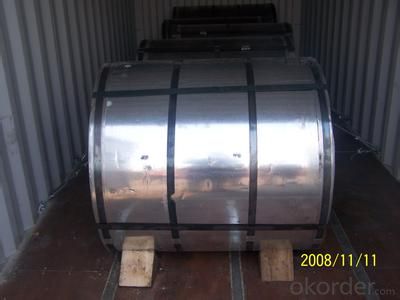
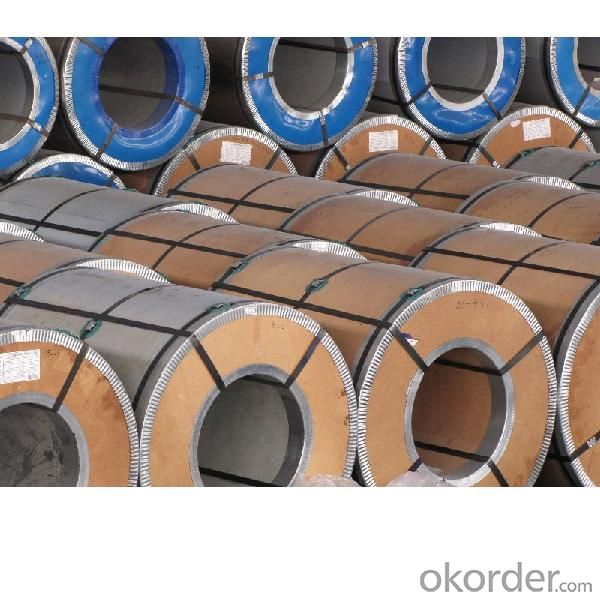
4.Galvanized Steel Coils Hot Dipped ASTM A653 Type GB Grade SGCC Specification:
| Zinc Coating | 60-275g( as required) |
| Thickness Range | 0.14mm-1.5mm |
| Coil Inner Diameter | 508mm / 610mm |
| Coil weight | 3-5MT(as required) |
| Surface | Regular/mini/zero spangle, chromated, skin pass, dry etc. |
| Width range | 600mm-1250mm(900mm, 1215mm, 1250mm, 1000mm the most common) |
5.PACKING:
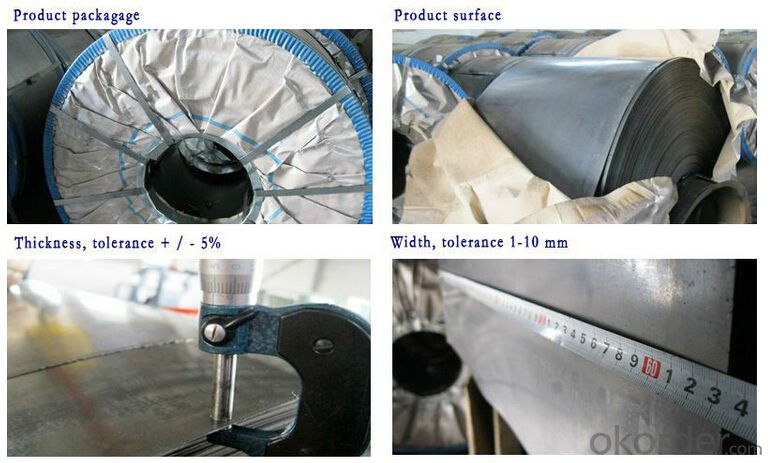
6.FAQ
We have organized several common questions for our clients,may help you sincerely:
①How about your company?
A world class manufacturer & supplier of castings forging in carbon steel and alloy steel,is one of the large-scale professional investment casting production bases in China,consisting of both casting foundry forging and machining factory. Annually more than 8000 tons Precision casting and forging parts are exported to markets in Europe,America and Japan. OEM casting and forging service available according to customer’s requirement.
②How to guarantee the quality of the products?
We have established the international advanced quality management system,every link from raw material to final product we have strict quality test;We resolutely put an end to unqualified products flowing into the market. At the same time, we will provide necessary follow-up service assurance.
③How long can we receive the product after purchase?
In the purchase of product within three working days, We will arrange the factory delivery as soon as possible. The pecific time of receiving is related to the state and position of customers.Commonly 7 to 10 working days can be served.
- Q: Can you use regular welding rods when welding stainless steel?Thank you.
- Yes you can use regular welding rods for stainless steel. But you will not have the properties of the stainless. The weld joint will have a different color than the stainless if you grind/grain/finish the weld. It could also rust. The joint could be weaker. It is best to use a rod that comes as close to the base metal stainless as possible. (30 years welding - certified)
- Q: What are the common quality control measures for steel coils?
- To ensure the performance and reliability of steel coils, several common quality control measures are implemented. These measures play a crucial role in upholding the overall quality of the coils and ensuring their compliance with the necessary standards and specifications. To begin with, dimensional checks are conducted to verify that the steel coils possess the correct thickness, width, and length. Deviations from the specified dimensions can significantly impact the coils' functionality and usability, making this check of utmost importance. Following that, visual inspections are carried out to identify any surface defects or imperfections such as scratches, dents, or corrosion. These inspections aid in identifying potential issues that could compromise the structural integrity of the coils or affect their aesthetic appearance. Moreover, mechanical property tests are performed to assess the strength, hardness, and other mechanical characteristics of the steel coils. These tests provide valuable insights into the coils' performance and durability under different conditions and loads. An essential quality control measure for steel coils is the analysis of their chemical composition. This involves scrutinizing the steel's composition, including the presence of any impurities or elements that may impact its properties. It ensures that the coils are made from the correct grade of steel and meet the required chemical specifications. Coating inspections also play a vital role in quality control. When steel coils are coated with protective layers, it is imperative to examine the adhesion, thickness, and uniformity of these coatings. This examination ensures that the coils have sufficient protection against corrosion and other environmental factors. Lastly, various non-destructive testing methods, such as ultrasonic testing, magnetic particle inspection, or eddy current testing, are employed to detect any internal defects or abnormalities in the steel coils. These tests enable the identification of issues like cracks, inclusions, or discontinuities that may not be visible through visual inspection alone. In conclusion, the quality control measures for steel coils consist of dimensional checks, visual inspections, mechanical property tests, chemical composition analysis, coating inspections, and non-destructive testing. These measures are vital in maintaining the quality and reliability of steel coils, guaranteeing their compliance with the required standards, and meeting customer expectations.
- Q: Hello. No freakin' website has no dam info on what products have carbon steel in them. I know it's in cooking equipment and tools, but what tools?i.e It's in a wrench or strainerSo what products have carbon steel in them?
- A simplification: Carbon steel is all of the steel things that aren't either HSS (high speed steel) or Stainless Steel. It also goes under the name Mild Steel. Things like tubes used to make furniture, shelving, some tools, wire wool, older car bodies, ships, BBQs would be made from carbon steel. As well as the properties listed on the linked website it responds well to heat treatment and be hardened more than HSS but will quickly get blunt if exposed to heat. Carbon steel is often coated with zinc or is painted to stops it from rusting
- Q: How are steel coils classified based on their thickness?
- Steel coils are classified based on their thickness into different categories such as light gauge, medium gauge, and heavy gauge.
- Q: What are the different types of welding methods used for steel coils?
- There are several different types of welding methods used for steel coils, including gas metal arc welding (GMAW), flux-cored arc welding (FCAW), shielded metal arc welding (SMAW), and submerged arc welding (SAW). Each method has its own advantages and is used based on the specific requirements of the project.
- Q: steel strutural
- how much of IS2062-92
- Q: What are the different types of steel coil cutting tools?
- In the market, one can find a variety of steel coil cutting tools. These tools have been specifically designed to efficiently and accurately cut steel coils. Some of the commonly used types of steel coil cutting tools include: 1. Slitting shears: These shears are widely utilized to cut steel coils into narrow strips. Equipped with multiple blades, slitting shears offer clean and precise cuts without causing any damage to the material. They are typically employed in high-volume production and are capable of handling different thicknesses of steel coils. 2. Rotary shears: Another commonly used cutting tool for steel coils is the rotary shear. These shears consist of rotating blades that shear through the material as it passes through them. Rotary shears are perfect for cutting medium to thick steel coils and are known for their high cutting speed and accuracy. 3. Guillotine shears: Guillotine shears are heavy-duty cutting tools that can handle thick steel coils. They operate by exerting a downward force to cut through the material in one clean stroke. Renowned for their power and precision, guillotine shears are suitable for cutting large volumes of steel coils. 4. Laser cutting machines: Advanced cutting tools like laser cutting machines employ a high-powered laser beam to cut through steel coils. These machines offer precise and intricate cuts with minimal heat distortion. Laser cutting machines are ideal for cutting complex shapes and patterns on steel coils. 5. Water jet cutting machines: Water jet cutting machines utilize a high-pressure stream of water mixed with abrasive particles to cut through steel coils. This method provides high accuracy and does not generate heat, making it suitable for cutting heat-sensitive materials. Water jet cutting machines can cut through various thicknesses of steel coils and produce smooth edges. Each type of steel coil cutting tool has its own advantages and is suitable for different applications. The choice of tool depends on factors such as the thickness of the steel coil, required precision, production volume, and budget.
- Q: so my parents gave me stainless steel cookware for christmas and the first time i used it i cooked chicken. it stuck to the pan and where the oil splattered it cooked on and turned it dark black and brownish. and the bottom too. i don't cook with it because i don't want to burn it on anymore but i don't know how to clean it. how do i cook without burning anything, aside from a lower flame and how on earth do i get the stains on. i've tried almost everything too! thanks.
- Hi okorder /... This article is helpful to avoid future problems. Personally, when something burned beyond burn I put water in the pan 1/2 full and heat it to a boil and simmer it 5 minutes and all the gunk is easy to remove with a scrubbie sponge and soap, water and or baking soda. I love cast iron cookware because it is a great nonstick option that does not emit toxic fumes at high temperatures like Teflon can. Seasoning it properly once in awhile is all it takes and it is indestructible. Have a great day.
- Q: How are steel coils used in the production of steel hinges?
- Steel coils are used in the production of steel hinges by being uncoiled and then cut into specific lengths and widths. These coils serve as the raw material for the hinges, providing the necessary strength and durability.
- Q: I know copper pots are supposed to be really good for cooking with, and I have been looking around online. One thing I don't want to do, however, is send them in to be re-lined with tin. So I was wondering if stainless steel lined copper pots work as well as the traditional tin lined ones, or if those make the copper just for looks.
- Stainless steel is durable and does not disolve and make things taste funny. Stainless steel is not a good conductor of heat, so it has hot and cold spots. Copper is very good conductor. They noe bond copper to stainless steel to get the best features of each. Some pots just have a very thin copper plating to fool you. A good pot will be heavier, It is really hard to tell from looking.if it is plating or a bonded layer of copper. the thicker the better
Send your message to us
Galvanized Steel Coils Hot Dipped ASTM A653 Type GB Grade SGCC
- Loading Port:
- China main port
- Payment Terms:
- TT OR LC
- Min Order Qty:
- 10 m.t.
- Supply Capability:
- 10000000 m.t./month
OKorder Service Pledge
OKorder Financial Service
Similar products
Hot products
Hot Searches
Related keywords
